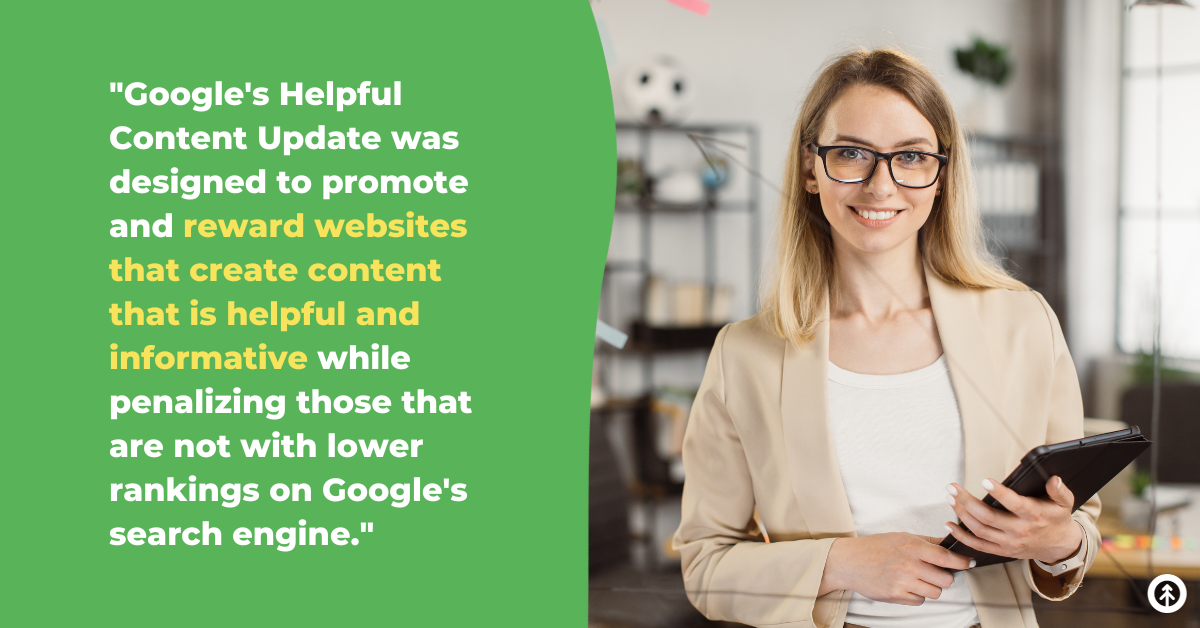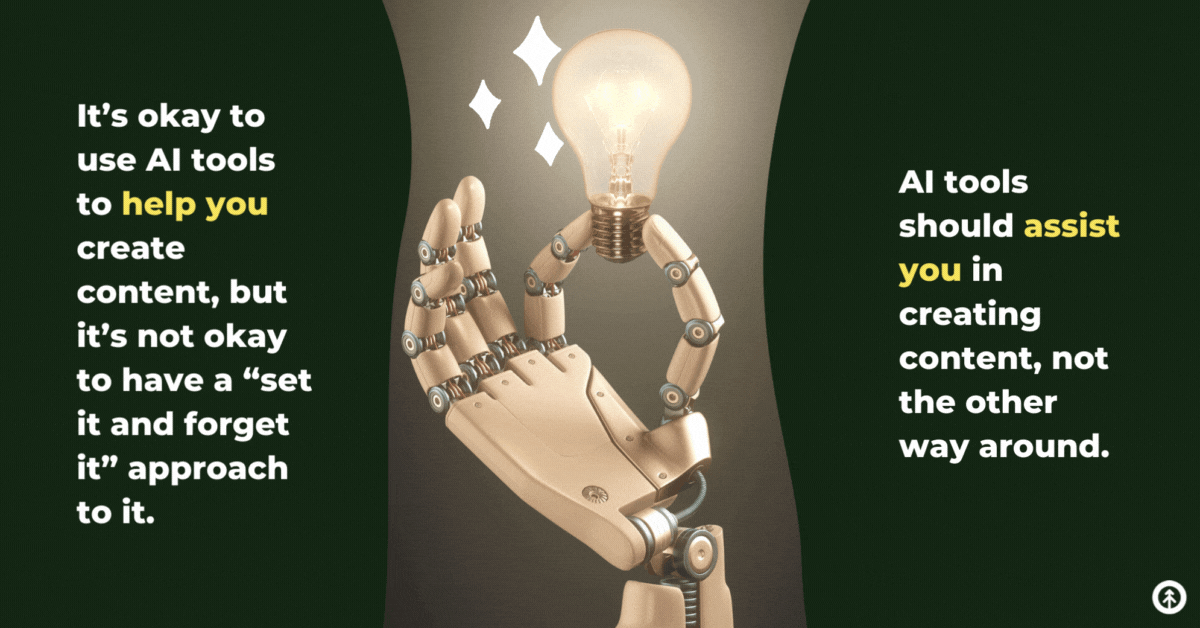On September 9th, 2022, Google’s Helpful Content Update completed its rollout, so we’re all under its effect now.
And even though Google algorithm updates can cause big changes in traffic and ranking for websites, this one should create big rewards for marketing teams who've followed an inbound marketing strategy and SEO best practices to drive traffic and sales.

So, let's dig in.
Quick answer: the Helpful Content Update was designed to promote and reward websites that create content that is helpful and informative (again, inbound marketing) while penalizing those that are not with lower rankings on Google's search engine.
If you're wondering how this update will affect your website, we've got you. We put together the highlights about the Helpful Content Update right here. Read on to discover:
Now that’s helpful content!
What it is: Content For People, By People
Google’s Helpful Content Update puts a greater emphasis on "people-first" content. That simply means that content must be written with a human reader in mind first and foremost (i.e. not for Google crawlers bots first).
To rank well now, content needs to be engaging, informative, and easy to read. Keyword stuffing or other “SEO just for the sake of SEO” tactics will now likely do more harm to your SERPs (and thus, your business) than good.
In short, Google sees the value in rewarding content that’s helpful to its intended audience by lifting it on the ranking pages (so your customers will more likely see it).

On the flip side of that coin, content that’s created specifically for a search engine will begin to fall in rank over time, so making adjustments now is imperative.
But What About SEO?
Google recommends that content creators continue to follow SEO best practices like making sure you use alt-text, meta descriptions, and appropriate keywords (to name just a few things) because these practices help Google crawlers understand what your website is about so it can serve it to the people who are searching for it.
If you're not sure where to start, our team of SEO experts can help you identify opportunities to improve your site's ranking and make sure you're prepared for any future updates.
Why Now? AI
AI content automation—when overused and unsupervised—can hurt your rankings under the Helpful Content Update because, with AI, you can generate a great deal of content that can be UNhelpful when overdone and generated solely to rank higher on the SERPs.
This update is Google’s way of getting ahead of the mountain of useless content that could overrun its business now that AI tools are so accessible and easy to use.

We can sometimes forget that Google’s main business is its priceless search engine, and they have to run it well for it to work for all of us.
Google serves the world 8.5 billion answers per day.
What if, for example, we searched “how do I reload Google Meet” right before a virtual meeting and got 25 articles that didn’t give us clear, step-by-step directions? We would miss our meeting.
How many times would that need to happen before we stopped going to Google when we needed information? Probably not many.
AI is creating a situation in which a blog article that usually takes 5 hours to write now takes 5 seconds to generate. With that type of output, Google understood that it needed to make big changes to algorithms to ensure that its users find the answers they need when they need them—and that they don’t have to dig through a landfill of content on the way.
Because it’s always been assumed that the more content you create the more likely you are to rank high on Google’s search results, people have used AI to create a lot of it fast whether it was helpful to their ideal customer or not. This update is Google’s line in the sand.
It’s okay to use AI tools to help you create content, but it’s not okay to have a “set it and forget it” approach to it. These tools should assist you, not the other way around.
So, What Now?
If you’re worried about whether your website complies with Google’s Helpful Content Update, ask yourself a few simple questions about your content:
- Who do I have in mind when I’m creating content for my website? (If it’s your ideal customer, you’re doing it right).
- Does my content share my own expertise that I might tell someone if they asked? (If yes, you’re golden).
- Do I create content for the sole purpose of ranking high on a Google search (or any search engine)? (Sure, we all want to rank to drive business, but we all know that helping people with what you do, know, and make is what really drives traffic at sundown, right? Right).
- Does my website have a primary focus or purpose? (If not, that’s a red flag).
- When someone leaves our site, have they learned what I hoped they would about what our business does, makes, or sells? (That’s a must).
If your organization hasn't already started taking advantage of Google's Helpful Content update, now is the time.
It provides opportunities for businesses that add value to users through relevant, helpful content that’s easy to find and use—which now improves their ranking in search results and gets their content (and their organizations) seen by more people.
Growth’s approach has always been to “give without a get” with our knowledge and expertise.
That means that whatever we know, we share so that everyone levels up together. We just think it’s more fun that way. But, yeah, Google thinks so, too.
And hey, we can create this kind of content to drive people to your business, too. Our team knows all about how to create content for your website, your blog, and your social media channels that helps your customers, your organization, and Google all at the same time. Talk to us about what you need. We’re right here.
